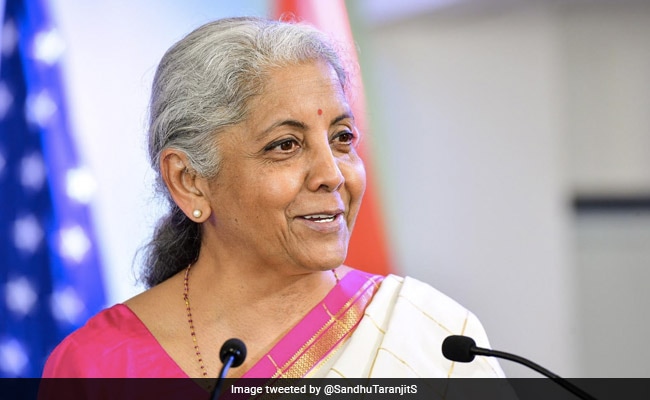RBI Rate Hike Came As A Surprise Because…: Finance Minister Nirmala Sitharaman
[ad_1]

The minister received an award for her handling of the economy through the pandemic
The Reserve Bank of India’s (RBI) move to raise key lending rate is part of synchronised action by central banks globally and had come as a surprise only because it was done between two monetary policy reviews, Finance Minister Nirmala Sitharaman has said.
“It is the timing which came as a surprise to many, but the act people thought should have been done anyway – to what extent could have varied,” she said at The Economic Times Awards for Corporate Excellence in Mumbai yesterday. “It came as a surprise because it came between two monetary policy reviews.”
The Finance Minister, who received an award at the event for her handling of the country’s economy through the pandemic, noted that the RBI had in its April policy review indicated that it was time to act on inflation.
The minister stressed that she doesn’t see the central bank’s move affecting the government’s infrastructure investment.
The RBI Wednesday raised its key lending rate by 40 basis points to 4.40 per cent. It also hiked the cash reserve ratio by 50 basis points.
The central bank pointed to rising inflation, geo-political tensions, high crude oil prices and global shortage of commodities as the reasons that led to the move.
This was the first hike in policy rate since August 2018 and would make borrowing dearer for corporates as well as individuals. The latest surprise hike completely reverses the Covid-support off-cycle rate cut in May 2020.
Retail inflation in the country was nearly 7 per cent in March and stayed above the upper end of the RBI’s target band of 2-4 per cent for the third month in a row.
The minister also said it makes “perfect sense” to buy oil from Russia if it’s being offered at a discounted rate, particularly with inflation on the rise.
“I thought we have been spending a lot of time explaining India’s position, not just on the abstentions (on Ukraine) when voting took place (at the United Nations), but also on the fact that if Russia is offering it to us at a discounted rate, we will still be buying it because it makes perfect sense, particularly when the world is stressed out with inflation,” she said.
“I think we’ll go ahead with what is good for the country. We need cheaper fuel. If it is available, why won’t we want to buy it? We will buy it,” the minister added.
Russia is facing tight sanctions from the West over its attack on Ukraine. While the US has banned Russian oil imports, the European Union and the UK have started phased plans to stop the imports.
[ad_2]
Source link










